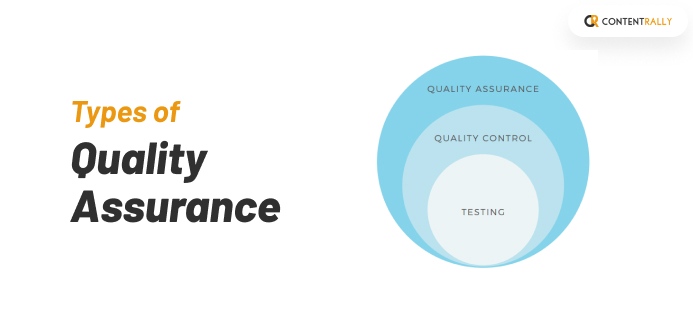Is Quality Assurance A Good Career Path in 2021? How many jobs are available in the quality assurance industry? What are the best paying jobs in the quality assurance sector? Let’s discuss these in detail.
Quality control officers may also be referred to as samplers, inspectors, and testers. A rise in the demand for software products has given a lift to tech businesses like never before. Individuals who are specialized in quality assurance can be guaranteed a steady and reliable job.
The job of quality assurance is to prevent bad software from being seen by customers or users. Quality assurance engineers are responsible for making sure the code other developers write is up to a certain standard. Let’s discuss the same in detail.
What Is Quality Assurance?

Quality assurance is the process of evaluating a product to determine its ability to meet requirements. Those individuals who work in quality assurance discover a process for creating and testing products before production or release.
Businesses either small or big, need quality assurance experts in order to meet the needs of the audience. A good quality product can increase your brand visibility and trust in the long run.
Popular firms who are willing to stay ahead in their business cannot afford the absence of quality assurance experts. So they make sure that other developers meet their deadlines and inform other developers of issues in their code.
What Is Quality Assurance Used For?
The main objective of quality assurance is to distinguish bugs and potential problems within the software. The primary role of QA engineers is to:
- Document test cases
- Track test results
- Perform manual and Automated Testing
- Identify any issues that users may encounter
- Create policies and standards to ensure high-quality code
- Discover problems or bugs within a program
- Create software test plans
- Code automated tests
Types Of Quality Assurance
Quality assurance engineers oversee feature testing and system testing. If you are willing to grow your career path in quality assurance, then you must consider the following types of quality assurance engineers and their duties:
i). Usability Testing
Quality assurance engineers test the usability of the product before its release. This test lets the team view how well the product is received and make all the end changes before the product is launched. Moreover, this test makes sure that the product functions in the way a customer expects.
ii). Feature Testingsting
Feature testing is done before an application is updated. The engineers who are performing this work must find any problems or bad user experiences that come from the updated software.
iii). Integration Testing
Integration testing is another type of Quality assurance that explores the several components of an application. At first, it evaluates how the individual component works and how it is tested as a whole. This is usually done before system testing.
iv). System Testing
This testing is a form of quality assurance that is done on a full project. It is actually the last test done before the product is released into the market. Moreover, it ensures all components of the software function properly.
Is Quality Assurance A Good Career Path In 2021
The answer to this question is an absolute Yes. Quality assurance is a good career path in the long run because this testing is in high demand, and testers get good pay.
If you have good experience in the quality assurance industry, you can upgrade your profile as well as your skills. It is also relatively easy to come back after a career gap. These specialists are very important in an organization because they help in making the reputation of a brand grow and prove its dedication to excellent goods and services.
If you have decided to become a quality assurance, then the first thing you need to consider is how much education you need. You may discover that other jobs can also help you to become a quality assurance.
How Many Jobs Are Available in Quality Assurance Industry?
According to our research, about 55k openings for quality control inspectors are projected each year, despite declining employment. Moreover, demand for Software Quality Assurance Engineers and Testers is expected to go up with an expected more than three lakhs jobs filled by 2029.
Now, let’s discuss the best paying jobs in the quality assurance industry in 2021.
i). Test Engineer
A test engineer develops assessments that firms use for all production processes. They also create effective plans for evaluation with the design and testing team.
These engineers develop proper documentation guidelines in order to make sure that the teams can replicate results.
ii). Project Manager
Project Manager is another best paying job in the quality assurance sector. These managers oversee the entire production process.
They develop a project plan, goal, requirements, and necessary resources to meet the company’s objectives. At the same time, they monitor their progress, assign project tasks, and plan to their team.
iii). Quality Assurance Tester
A Quality Assurance Tester performs evaluations to identify defects in a product.
They use debugging programs to help identify issues in thousands of lines of code and communicate results to the rest of the team to get the solutions.
iv). Quality Assurance Analyst
Quality Assurance Analyst is one of the best paying jobs in this sector. These individuals oversee the complete testing process for products.
They prepare for possible external audits and executes internal auditing tests. Also, they make sure that the products produce the right results.
The Final Verdict
Is Quality Assurance A Good Career Path In 2021? You have now got an answer to this question with top reasons why you should pursue this industry in the long run. Quality assurance professionals are required by all manufacturers to make sure that all products are of premium quality.
Read Also:
- Is Major Banks A Good Career Path?
- Is Consumer Non-durables A Good Career Path?
- Is Precious Metals A Good Career Path?
- Is Finance Consumer Services A Good Career Path?
- Is Telecommunications Equipment A Good Career Path?
- Is Photography A Good Career Path?


























